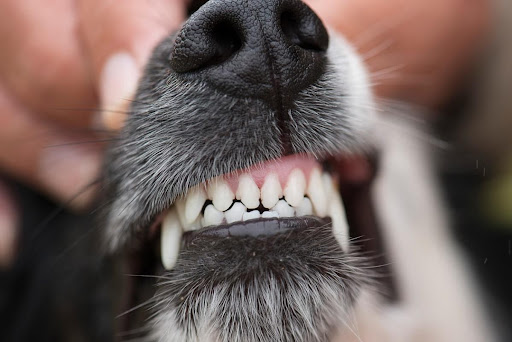Pet dental health is essential for your pet’s overall health and longevity. Although cavities are less common in pets than in people, they can have some of the same dental problems that people can develop.
Pet Dental Health Month
February is National Pet Dental Health Month. The AVMA created this month-long event to help raise awareness and promote the importance of pet dental health. Sometimes a problem is difficult to notice, and you find it when it’s too late, with your pet already in discomfort to the point where they have stopped eating.
Why Pet Dental Health is Important
Proper dental care will help keep your pet from developing a wide variety of dental health issues, such as periodontal disease caused by bacteria buildup in the mouth. These bacteria form a film over the teeth called plaque. As the bacteria die, they can become calcified by the calcium in your pet’s saliva. The calcified plaque is called tartar, and it can eventually lead to gingivitis, which can lead to an infection in the root of the tooth. In the late stages of periodontal disease, the tissues around the tooth are destroyed, and the socket that holds the tooth in place erodes, causing a loose tooth.
Another common dental problem is broken teeth. Chewing on hard toys and treats like antlers and bones can damage your dog or cat’s teeth. A broken tooth can expose the tooth’s nerve, which is very painful for your pet. Additionally, the exposed nerve can become infected and cause even more problems for your pet. At this point, the tooth will need to be removed.
Veterinary research also suggests that periodontal disease in pets is linked with disorders of the organs too, particularly in the liver, kidneys, and heart.
Signs of Pet Dental Problems
Regardless of any problems, your pet’s teeth should be checked at least once a year by your veterinarian for early signs of a problem and to keep your pet’s mouth healthy.
Have your pet’s teeth checked sooner if you observe any of the following problems:
- Bad breath
- Broken or loose teeth
- Extra teeth or retained baby teeth
- Teeth that are discolored or covered in tartar
- Abnormal chewing, drooling or dropping food from the mouth
- Reduced appetite or refusal to eat
- Pain in or around the mouth
- Bleeding from the mouth
- Swelling in the areas surrounding the mouth
Some pets become irritable when they have dental problems, and any changes in your pet’s behavior should prompt a visit to your veterinarian. Be careful when checking your pet’s mouth because pain can cause a pet to react aggressively.
Pet Dental Care at Home
In between bringing your animal to the veterinarian for dental care, you can do some things to help at home.
- Brush their teeth. Brushing your pet’s teeth may seem extreme, but it is hugely beneficial for them. We recommend you brush your pet’s teeth once a day. As a note, never use your toothpaste on them.
There is toothpaste made for pets in different pet flavors such as poultry, seafood, and beef. There are also plaque prevention gels.
Note: brushing a dog or cat’s teeth is not the same as brushing your teeth. Here is an excellent video from the AVMA on brushing your pet’s teeth.
- Use tooth wipes. Tooth wipes are a faster and easier solution than brushing their teeth, although slightly less effective.
- Give them dental treats/chews. There are many treats and chew toys that you can buy for your pet that help remove plaque and improve dental health. If you are unsure what you should get for your pet, consult with your veterinarian.
Final Words
We recommend yearly wellness visits for all pets – even healthy ones! For senior pets (over the age of 7 years), we recommend bringing your pet every six months. Please contact us if you need to schedule your pet for a wellness or dental exam.
Just like with humans, your pet’s dental care is very important. Even something as simple as “dog breath” can signal a bigger, more serious problem. We offer a variety of teeth and gum services for your pet to ensure good dental health. Additionally, it is important that you continue to care for your pet’s teeth at home, and we can show you how to properly do this.
Sincerely,
Dr. Janelle McFarland
Wags and Whiskers Veterinary Services
